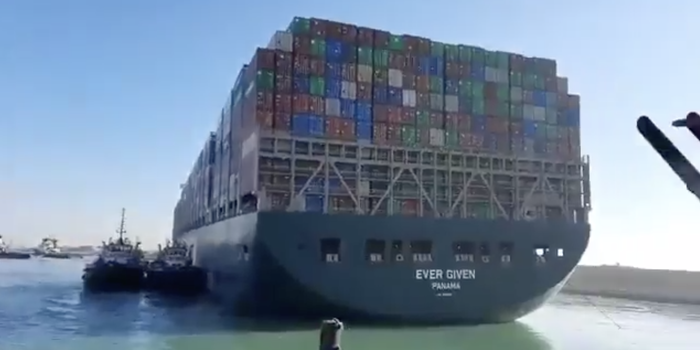
Could breaking Nigeria's addiction to crude oil turn it from a failing state into the next China?
That's not as improbable as it sounds (🧵): #OOTT
bloomberg.com/opinion/articl…
That's not as improbable as it sounds (🧵): #OOTT
bloomberg.com/opinion/articl…
People often use the phrase "resource curse" to talk about oil. Often, it brings more harm than benefits.
There's few better examples of this than Nigeria.
Within a decade of oil being discovered in 1957, the newly-independent country was fighting a civil war over it.
There's few better examples of this than Nigeria.
Within a decade of oil being discovered in 1957, the newly-independent country was fighting a civil war over it.

Oil production hasn't grown since the late 1970s but the population is nearly four times the size.
Crude production in Nigeria (pop.: 200m) is roughly the same as Norway (5m).
Even if the wealth was shared equitably and wisely, there just isn't enough of it to go round.
Crude production in Nigeria (pop.: 200m) is roughly the same as Norway (5m).
Even if the wealth was shared equitably and wisely, there just isn't enough of it to go round.

But it remains absolutely central to the Nigerian state, and an economy that's stunted by oil's influence.
More than half of wage jobs are in the public sector, which traditionally derived about 80% of its tax revenue from crude.
More than half of wage jobs are in the public sector, which traditionally derived about 80% of its tax revenue from crude.
A currency that's perennially overvalued because of the quasi-dollar peg it maintains for the sake of the oil sector has stifled non-oil export industries.
In 1981, Nigeria had a bigger manufacturing sector than South Korea. But it's barely grown since then.
In 1981, Nigeria had a bigger manufacturing sector than South Korea. But it's barely grown since then.

The distortions and vast wealth associated with crude also help fuel the endemic corruption and civil disorder with which Nigeria is almost synonymous: 

It's easy here to overlook one thing that should be a substantial advantage for Nigeria: Its vast, and fast-growing, labour force.
One in eight people joining the working-age population over the next 30 years will be Nigerian. Around 2050 it will be roughly one in three!
One in eight people joining the working-age population over the next 30 years will be Nigerian. Around 2050 it will be roughly one in three!
It's often underappreciated that China's economic rise was demographic.
China boomed because hundreds of millions of people joined the labour force in the 1990s and 2000s, and the country found labour-intensive export industries for them to work in.
China boomed because hundreds of millions of people joined the labour force in the 1990s and 2000s, and the country found labour-intensive export industries for them to work in.
That's an area where Nigeria has singularly failed. Almost uniquely among large emerging economies, workforce participation has actually been falling, not rising. 

As @Noahpinion argues here, whether African industrialization succeeds or fails is one of the most important issues facing the world over the next century:
https://twitter.com/Noahpinion/status/1366365100957978626?s=19
I'd argue Nigeria — with its huge and growing labour force, 17 million-strong diaspora, and obsession with high-quality elite education — is actually quite well-placed to be an engine of this growth. But the resource curse is smothering that potential.
A decent comparison is another large, populous, tropical, corrupt, strife-riven oil exporter: Indonesia, 50 years ago.
Indonesia in 1971 looked quite as chaotic as Nigeria does now. But its performance since then has been far better.
Indonesia in 1971 looked quite as chaotic as Nigeria does now. But its performance since then has been far better.

That's come as oil production has declined to the point that Indonesia is now a net importer. The end of the Indonesian oil boom was the start of the Indonesian economic boom. 

I think there's a few signs that this may be about to change. Oil revenues as a share of Nigeria's budget have fallen in recent years to the point where they're less than half the total. That may start to shift political incentives. 

There are also hints that manufacturing may start to take root more strongly — most particularly with the giant sugar, cement and oil refining plants being built by Africa's richest man, Aliko Dangote: 

Nigeria also has solar power potential similar to that of India, where that sector is booming.
Industry is seriously hampered by a power grid that's barely functional, leaving factories dependent in back-up diesel generation.
Industry is seriously hampered by a power grid that's barely functional, leaving factories dependent in back-up diesel generation.

Solar could provide this power more cheaply, and even be linked up into mini- and eventually national-scale grids that could fix the problem of a huge energy exporter that can barely provide energy to its citizens.
So I'm cautiously hopeful about Nigeria in the long term. Breaking the power of oil will be a long and painful struggle, but once it happens the potential of this country is enormous. 

This is the third of a four-part series I've been working on with @ClaraDFMarques this week about how oil exporters could cope in a post-oil world.
Part one, on Saudi Arabia, is here: bloomberg.com/opinion/articl…
Part one, on Saudi Arabia, is here: bloomberg.com/opinion/articl…
And part two, on Russia, is here: bloomberg.com/opinion/articl…
Clara will be writing on Canada tomorrow. Do read them all! (ends)
Clara will be writing on Canada tomorrow. Do read them all! (ends)
PS: Also read this great feature from @AlakeTope today about Nigeria's solar power push:
bloomberg.com/news/articles/…
bloomberg.com/news/articles/…
• • •
Missing some Tweet in this thread? You can try to
force a refresh










